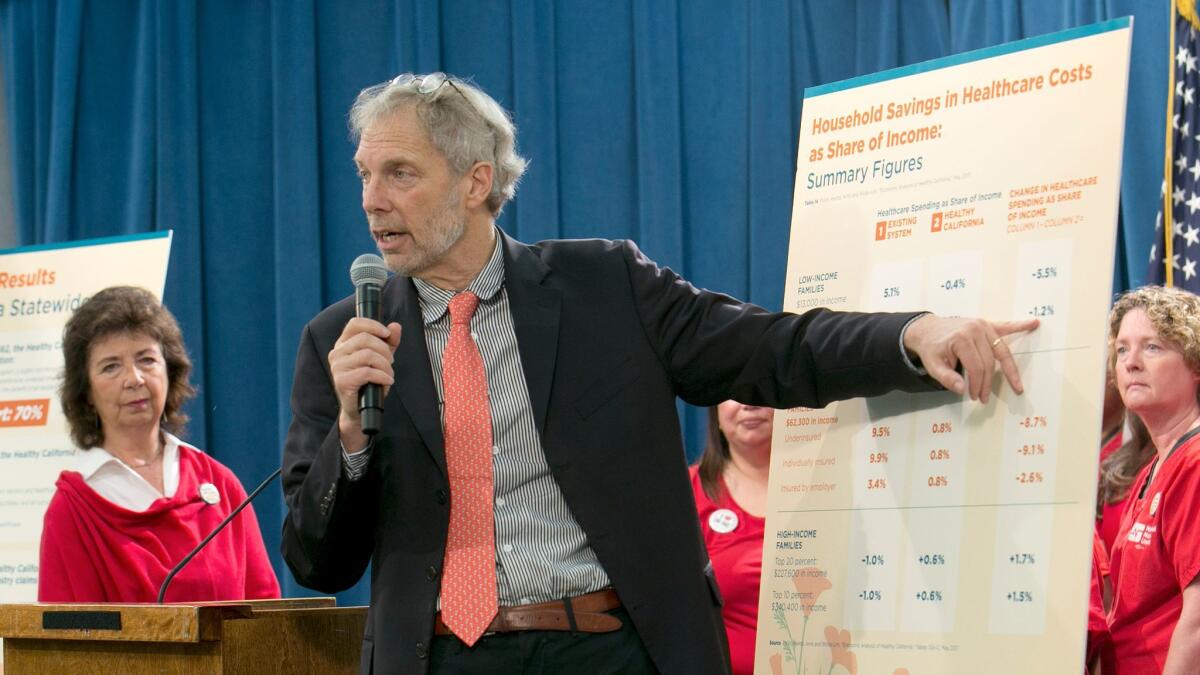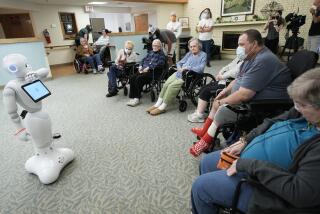Opinion: On the surface, single payer looks great. In the medical trenches, it’s a lot more complicated.

To the editor: Economist Robert Pollin makes bold claims to support the single-payer Healthy California Act. He has calculated the estimated cost based on assumptions of replacing health insurance with government-managed insurance, improved administrative costs, discouraging unnecessary treatments, lowering physician and drug costs and increasing preventive care. (“Single-payer healthcare for California is, in fact, very doable,” Opinion, June 21)
All of these goals are laudable, but they are easier said than done.
Here’s what happens in the trenches: Government-managed healthcare is inefficient, denial of care is frequent, managed-care cost has steadily risen, physician fees remain stagnant, lowering drug costs is complex, and the cost of treating chronic illness is enormous.
Increasing taxes to pay for this program without first changing the mindset of the bureaucrats and inefficient government systems does not make sense. Perhaps Pollin should help implement single payer in his home state of Massachusetts before exporting it.
Jacob Korula, MD, Arcadia
..
To the editor: Pollin is correct: By reallocating Medicare and Medi-Cal funds and what is paid for corporate insurance profits, single-payer makes economic sense. Some have suggested that California can’t afford universal care because we are “just one state.” But California has a risk pool of almost 40 million people, more than the 36 million people in Canada, a country with a single-payer system.
Healthcare is a matter of public health and safety, just like law enforcement and firefighting. When your house is on fire or being broken into and you call 911, dispatchers do not ask where you work or what kind of insurance you have; they just send help.
When your life is endangered by illness or injury, access to lifesaving care should not depend on where you work or your insurance; you should just get help.
Douglas Dunn, Escondido
..
To the editor: California’s single-payer plan only makes economic sense if you are not a senior or a physician.
Healthy California relies on co-opting all of the Medicare money currently used for California seniors into a state fund. Medicare has been a lifeline for seniors for decades. It is efficiently administered and accepted by most physicians and hospitals, giving seniors access to the best care across the country.
Seniors have already paid for their Medicare through deductions from their paychecks and their premiums. Why should they pay an additional sales tax? Why would any senior choose to give up Medicare for an untested state plan on shaky financial ground that is not guaranteed to be accepted outside California?
Paula Bernstein, MD, Los Angeles
Follow the Opinion section on Twitter @latimesopinion and Facebook
More to Read
A cure for the common opinion
Get thought-provoking perspectives with our weekly newsletter.
You may occasionally receive promotional content from the Los Angeles Times.






